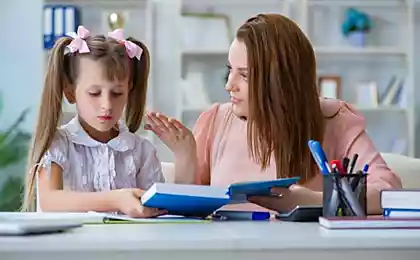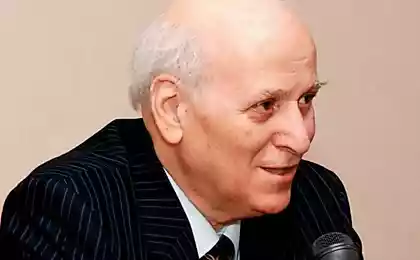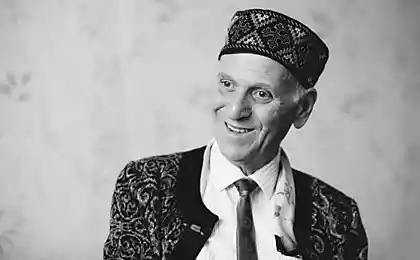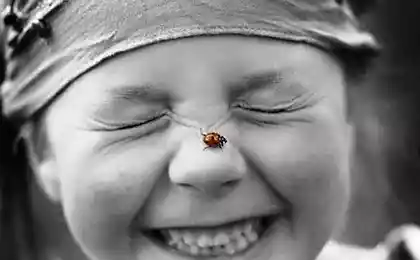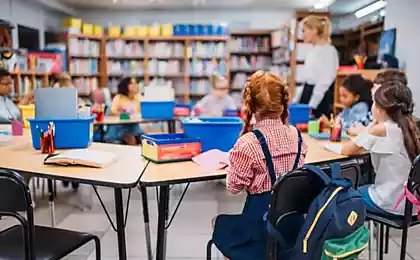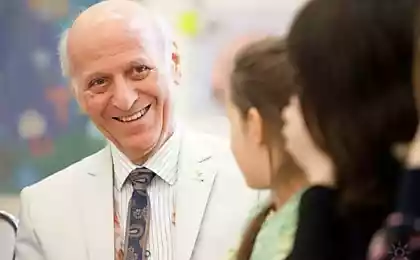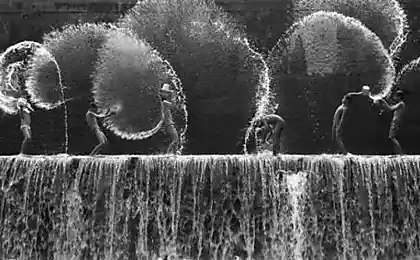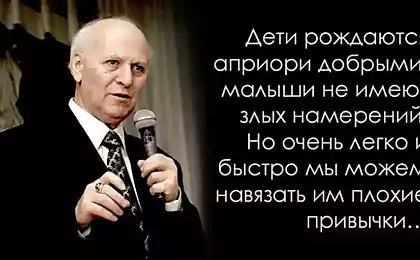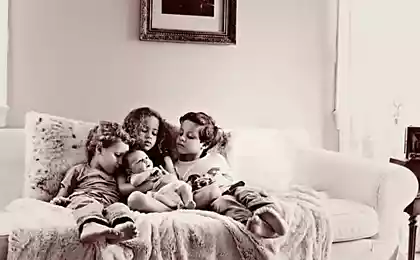182
The approach of teacher Shalva Amonashvili to teaching children
The teacher is a way of life and a state of mind. Language does not turn to call pedagogy an ordinary job. I want to do it again. confess love to all teachersThank you, dear ones, for working to save from ignorance and shed the light of knowledge, educating a new Man.
We support the festive mood with an article on humane pedagogy. Shalva Alexandrovich Amonashvili is an example of an ideal teacher, Soviet, Georgian and Russian teacher and psychologist. Academician of APN USSR (1989).
Modern. theory Give it a shot. Here and there are teachers who share their views on the education of children. And if some theories are quite bold in nature, then others do not fit well in your head. You wonder if they are experimenting with children?
In such a responsible issue as the upbringing of children, you want to trust only trusted specialists. And then the name of the Soviet and Georgian teacher, psychologist and simply sage Shalva Amonashvili comes to mind - a person who stood at the origins of humane pedagogy, known as the "Shalva Amonashvili" pedagogy of Amonashvili.
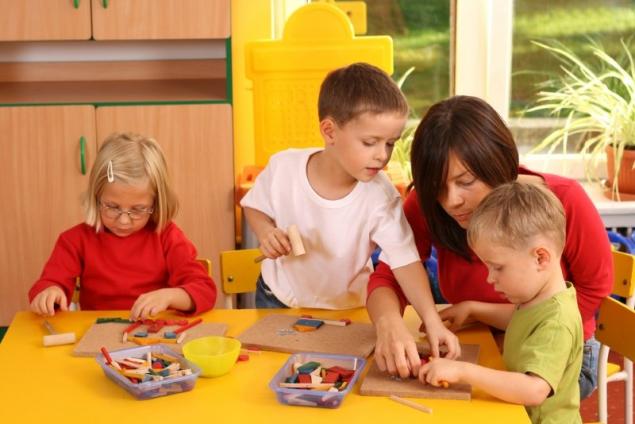
DepositPhotos
Humane pedagogy Modern pedagogy is outdated. Any student will tell you what the lesson consists of: opened the textbook, read, recorded in a notebook, closed the notebook, opened the diary and the lesson is over. But it doesn't work anymore. We imposed this model on the children, and they accepted it, but they disagreed with it. They are bored, says Shalva Alexandrovich.

DepositPhotos
“In our time, the world was different. Society forced parents, parents forced children. Those principles were adequate for an authoritarian environment. And today we're putting a deuce on a kid who's bored in class. It just breaks my heart, the teacher said.
“Today, many teachers are waiting for the end of their holidays to go to school and mentor more twos. Going to class, the teacher already fully knows the material, so he is not interested. In learning, it is necessary that the student and the teacher act together, learning the subject together. What do we really have? Thousands of lessons in childhood.”
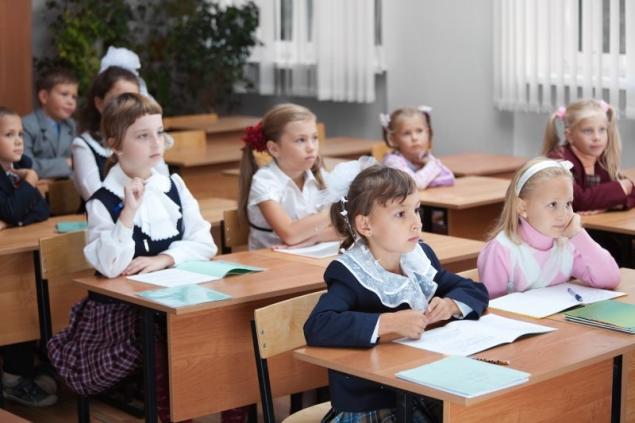
DepositPhotos
In 1948, my literature teacher gave us a year to study Shota Rustaveli’s poem “The Knight in Tiger’s Skin.” And she studied with us. Each lesson turned into a symposium: we said that we understood what we felt, what we disagreed with. In this work there is a place for heroism, love, and mercy. We lived the reading day by day.”
“I later learned that she had no right to do so, because we had to go through a whole list of works. But she understood how much this poem would give each Georgian. What a feat the teacher did! How many times in my life have I remembered her lessons when I had to make an important decision. And most often it turned out to be true, recalls Amonashvili.
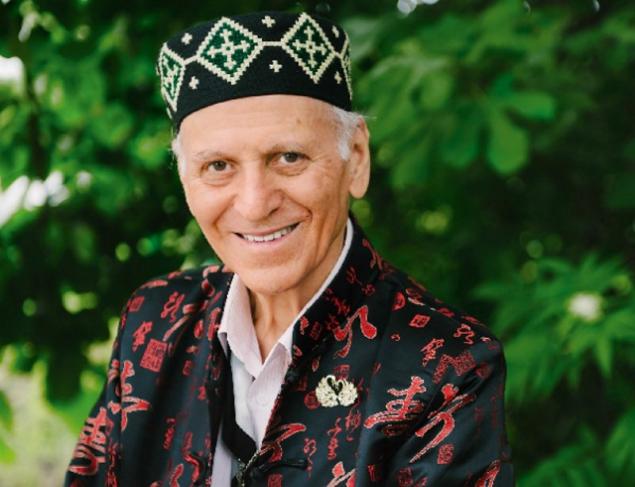
“Teachers can also be divided into two students and excellent students. The school itself exists in culture. She can't live alone. There are competitions at school, but it is unnecessary. There must be an approach to every child. There must be praise, admiration, a smile. Not only dry assessments, insists the wise teacher.
“Where there are good teachers, there are good students. But educators themselves should also be encouraged to improve. If the teacher doesn't want to change, you can't force him to. And the director should recruit the team for himself.”
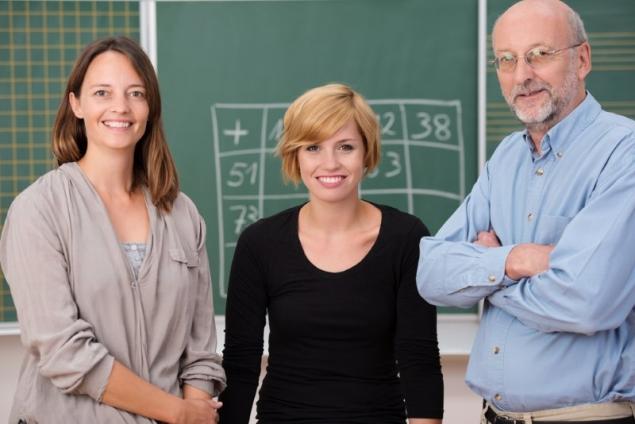
DepositPhotos
I remember we were engaged in Moscow school No. 20, correctional. When we were going to introduce “humane pedagogy”, the whole team left. We quickly dialed who we found. Praise the students, support the teachers. After 2 years, the planned inspection certified us as a high school - an incredible result, Amonashvili recalls.
“The school has now grown into an educational centre. This is because teachers need to be created. If you just cook on a specific subject, then there will be just laborers and just mathematicians. Let the teacher develop, write him humanity and he will become better, said Shalva Alexandrovich.
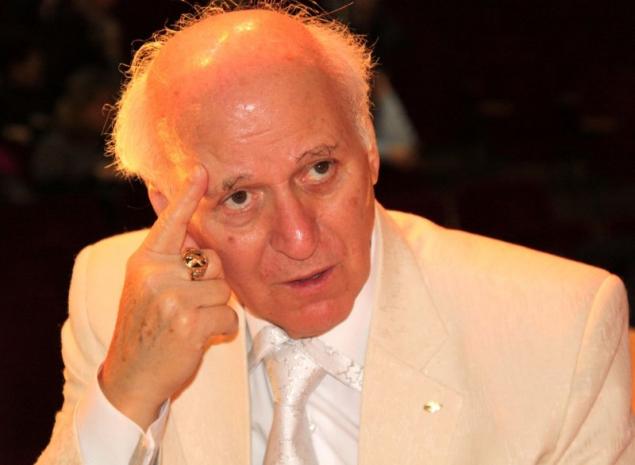
“Much depends on the parent who should involve the child in life as in a fairy tale. Call on the feelings of the baby, help to cope with offenses, support. Act indirectly on him - tell instructive stories, share your own experience. Set up on a good wave, thank you for positive words and thoughts, the teacher advises.
“The children of today are the most talented. Even the most ordinary child has some talent. And they feel superior to teachers, parents, grandparents. Education must therefore be nurtured with love and patience.”
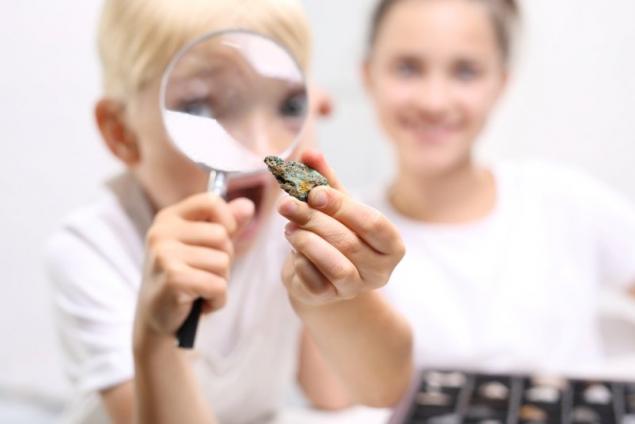
Here are the tips from the master of education, 87-year-old Shalva Aleksandrovich Amonashvili, who devoted his entire conscious life to pedagogy. His model of education is based not on training, but on interaction with the child on an equal footing, so that each participant in the process was interesting and comfortable. That makes sense, doesn't it?
We’ve talked about how children are raised in France. There, the child is not allowed extra, do not indulge his whims and are taught to always respect the elders. And, most amazingly, the French do it. But in the Netherlands, parents generally think only about themselves, allowing the child to solve their problems independently. It's an unexpected result.
What are they? school-education Do you think it's optimal? Share your opinion in the comments.
We support the festive mood with an article on humane pedagogy. Shalva Alexandrovich Amonashvili is an example of an ideal teacher, Soviet, Georgian and Russian teacher and psychologist. Academician of APN USSR (1989).
Modern. theory Give it a shot. Here and there are teachers who share their views on the education of children. And if some theories are quite bold in nature, then others do not fit well in your head. You wonder if they are experimenting with children?
In such a responsible issue as the upbringing of children, you want to trust only trusted specialists. And then the name of the Soviet and Georgian teacher, psychologist and simply sage Shalva Amonashvili comes to mind - a person who stood at the origins of humane pedagogy, known as the "Shalva Amonashvili" pedagogy of Amonashvili.

DepositPhotos
Humane pedagogy Modern pedagogy is outdated. Any student will tell you what the lesson consists of: opened the textbook, read, recorded in a notebook, closed the notebook, opened the diary and the lesson is over. But it doesn't work anymore. We imposed this model on the children, and they accepted it, but they disagreed with it. They are bored, says Shalva Alexandrovich.

DepositPhotos
“In our time, the world was different. Society forced parents, parents forced children. Those principles were adequate for an authoritarian environment. And today we're putting a deuce on a kid who's bored in class. It just breaks my heart, the teacher said.
“Today, many teachers are waiting for the end of their holidays to go to school and mentor more twos. Going to class, the teacher already fully knows the material, so he is not interested. In learning, it is necessary that the student and the teacher act together, learning the subject together. What do we really have? Thousands of lessons in childhood.”

DepositPhotos
In 1948, my literature teacher gave us a year to study Shota Rustaveli’s poem “The Knight in Tiger’s Skin.” And she studied with us. Each lesson turned into a symposium: we said that we understood what we felt, what we disagreed with. In this work there is a place for heroism, love, and mercy. We lived the reading day by day.”
“I later learned that she had no right to do so, because we had to go through a whole list of works. But she understood how much this poem would give each Georgian. What a feat the teacher did! How many times in my life have I remembered her lessons when I had to make an important decision. And most often it turned out to be true, recalls Amonashvili.

“Teachers can also be divided into two students and excellent students. The school itself exists in culture. She can't live alone. There are competitions at school, but it is unnecessary. There must be an approach to every child. There must be praise, admiration, a smile. Not only dry assessments, insists the wise teacher.
“Where there are good teachers, there are good students. But educators themselves should also be encouraged to improve. If the teacher doesn't want to change, you can't force him to. And the director should recruit the team for himself.”

DepositPhotos
I remember we were engaged in Moscow school No. 20, correctional. When we were going to introduce “humane pedagogy”, the whole team left. We quickly dialed who we found. Praise the students, support the teachers. After 2 years, the planned inspection certified us as a high school - an incredible result, Amonashvili recalls.
“The school has now grown into an educational centre. This is because teachers need to be created. If you just cook on a specific subject, then there will be just laborers and just mathematicians. Let the teacher develop, write him humanity and he will become better, said Shalva Alexandrovich.

“Much depends on the parent who should involve the child in life as in a fairy tale. Call on the feelings of the baby, help to cope with offenses, support. Act indirectly on him - tell instructive stories, share your own experience. Set up on a good wave, thank you for positive words and thoughts, the teacher advises.
“The children of today are the most talented. Even the most ordinary child has some talent. And they feel superior to teachers, parents, grandparents. Education must therefore be nurtured with love and patience.”

Here are the tips from the master of education, 87-year-old Shalva Aleksandrovich Amonashvili, who devoted his entire conscious life to pedagogy. His model of education is based not on training, but on interaction with the child on an equal footing, so that each participant in the process was interesting and comfortable. That makes sense, doesn't it?
We’ve talked about how children are raised in France. There, the child is not allowed extra, do not indulge his whims and are taught to always respect the elders. And, most amazingly, the French do it. But in the Netherlands, parents generally think only about themselves, allowing the child to solve their problems independently. It's an unexpected result.
What are they? school-education Do you think it's optimal? Share your opinion in the comments.
